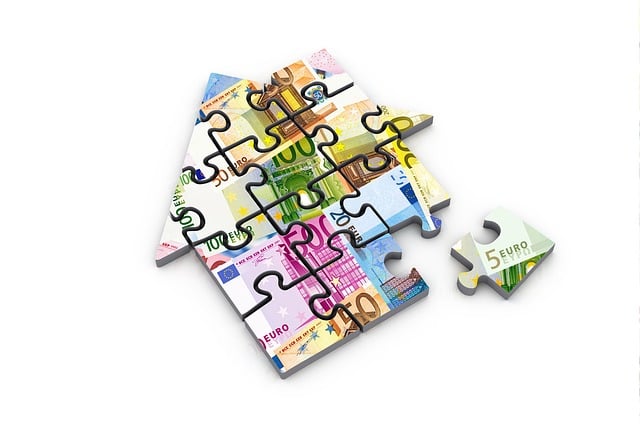Personal Loan Consolidation simplifies multiple high-interest debts by bundling them into a single fixed-rate loan, potentially reducing overall interest expenses and streamlining repayment. Access requires demonstrating stable income and responsible debt management (higher credit scores, lower debt-to-income ratios), with consistent employment history crucial for approval and securing favorable rates. While effective, it's important to explore alternatives like debt management programs, bankruptcy, or non-profit credit counseling services for bad credit cases, as these offer educational resources and strategies to manage debt without relying on loans.
Struggling with multiple debts and high-interest rates? A bad credit debt consolidation loan could be a game-changer. This article guides you through the process, focusing on the key eligibility criteria for personal loan consolidation. We’ll explore how your financial health is assessed and provide alternative options to consider. Understanding these factors ensures you make informed decisions towards a more manageable financial future.
- Understanding Bad Credit Debt Consolidation Loans
- Key Eligibility Requirements for Personal Loan Consolidation
- Evaluating Your Financial Health for Loan Approval
- Alternative Options to Consider for Debt Relief
Understanding Bad Credit Debt Consolidation Loans
Bad credit debt consolidation loans are designed to help individuals struggling with multiple high-interest debts by combining them into a single, more manageable loan. This approach can simplify repayment and potentially lower overall interest costs. Personal Loan Consolidation allows borrowers to pay off various debts, such as credit card balances, store cards, or even existing personal loans, using a new loan with a fixed interest rate.
By consolidating debt, borrowers can enjoy the benefit of a single payment each month instead of multiple ones, making financial management easier. It’s important to note that while these loans can be helpful for debt relief, they require careful consideration. Lenders will assess your creditworthiness based on factors like income, existing debts, and credit history, so having a stable financial situation is crucial for approval and accessing competitive interest rates.
Key Eligibility Requirements for Personal Loan Consolidation
When considering personal loan consolidation, several key eligibility requirements come into play. Lenders will assess your creditworthiness, which includes evaluating your credit score and history. A higher credit score typically improves your chances of approval and can lead to better interest rates. Lenders also consider your debt-to-income ratio, ensuring that a significant portion of your income is not allocated to existing debts. This demonstrates your ability to manage additional loan payments effectively.
Additionally, lenders may require stable employment and a minimum level of income to justify the consolidation loan. They will verify your identity and income through documentation, such as pay stubs or tax returns. It’s important to have a consistent employment history, as it shows financial stability and reliability in repaying the loan. Demonstrating these qualifications can make a significant difference in securing a Personal Loan Consolidation that suits your financial needs.
Evaluating Your Financial Health for Loan Approval
When applying for a personal loan consolidation, lenders will carefully evaluate your financial health to determine eligibility. This involves assessing your credit score, debt-to-income ratio, and overall financial obligations. A strong credit history with a good credit score indicates responsible borrowing and increases your chances of approval. Lenders look for consistent repayment behavior and a manageable level of existing debt.
Your debt-to-income ratio, which compares your monthly debt payments to your income, is another critical factor. A lower ratio suggests you have the financial stability to take on additional debt responsibly. It’s important to demonstrate that consolidating your debts will not put an unreasonable strain on your budget. Lenders aim to ensure borrowers can comfortably manage their loan repayments alongside their existing financial commitments.
Alternative Options to Consider for Debt Relief
Many individuals seeking debt relief often turn to Personal Loan Consolidation as a solution, especially when dealing with bad credit. However, it’s essential to explore alternative options before diving into any consolidation loan. One viable choice is enrolling in a debt management program, where a professional agency assists in negotiating with creditors on your behalf, potentially reducing interest rates and monthly payments. These programs offer educational resources and financial guidance, helping you regain control over your finances without the need for a loan.
Another option to consider is bankruptcy, which can provide a fresh start by eliminating or restructuring certain types of debt. While it carries significant legal and personal implications, it might be an effective way out in extreme cases. Additionally, some organizations offer non-profit credit counseling services, providing valuable insights and strategies for managing debt without incurring further borrowing costs. Exploring these alternatives can empower individuals to make informed decisions about their financial future.
When considering a personal loan consolidation for bad credit, evaluating your financial health and understanding the key eligibility criteria are vital steps. Lenders will assess your income, debt-to-income ratio, and credit history to determine approval. While the process may seem daunting, there are alternative options available, such as credit counseling or debt management programs, which can offer debt relief without the need for a loan. Ultimately, choosing the right path depends on your unique financial situation and goals.
